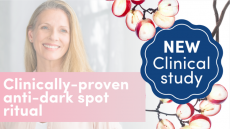CBD supplement line launches with test program to donate products to those who can't afford them

Irie Hemp Company is based in San Diego and was launched by Trevor Hill, who says he is registered as a hemp grower in the state of Oregon, and a partner with experience in the CBD product field. (Oregon has suspended its hemp growing registration program for the 2016 growing season awaiting state legislation that would clarify the legal status of the operations. Existing three-year registrations remain in force, the state says.) CBD, or cannabidiol, is a non-narcotic fraction of the cannabis plant. Industrial hemp is a cultivar of cannabis that is low in THC, the narcotic fraction of the plant. Hill, like virtually all who are active in the CBD supplement game, is careful to say that the raw material for his company’s products are derived from this source, which by law is supposed to contain 0.03% TBC or less.
Supply bottleneck
But even in strains of hemp claiming to be high in CBD, a lot of raw material must be processed to concentrate the CBDs. Combine this with the still-patchy domestic supply picture, and you end up with products that typically carry a heavy price premium. CBD has a number of purported effects in the body, from general health support and anti-anxiety properties to effects that trend over into disease claim territory, including anti seizure properties. It is this last that has led a number of parents of children with certain types of epilepsy to rely on the molecule to dampen down seizures in situations where drugs have proven insufficiently effective. Some of these families are convinced enough about the efficaciousness of these products (“Charlotte’s Web” is one brand name used in the market) that they are willing to bear out of pocket the high cost of regular usage. English company GW Pharmaceuticals is developing a drug based on CBD which, if approved, could become eligible for insurance reimbursement.
Hill said he’s sensitive to the criticism that CBD products are seen as overpriced. It’s still early in the commercial development of the molecule, but he said he expects prices to start coming down gradually as the supply picture begins to clarify.
“We are looking at different ways to increase bioavailability and also affordability,” Hill told NutraIngredients-USA. “We have been working with CBD for about two years, and it’s an evolving story. What I tell you today won’t be true in three months. The CBD we were at first buying for eight cents a milligram is now half that. We are buying hemp from Europe but we probably won’t have to next year.”
Social program
In the meantime Hill is attempting to ameliorate the inherent high cost of CBD by launching his company with a test program modeled on social entrepreneurship pioneer TOMS' Shoes. In the campaign dubbed, "It's all good", for every two products Irie sells up until January 1, 2016, it will allow purchasing customers to nominate someone who may not be able to afford CBD and place them on a list to receive a free product. If no one is nominated, Hill says Irie will donate a CBD product to a partnering health practitioner in the developing world.
While FDA has flatly said it does not consider CBD to be a legal dietary ingredient at the moment, that hasn’t stopped Hill and host of other product developers. Hill said that he is aware of FDA’s concerns, and believes he’s steering clear of potential issues with regulators by avoiding any claims on his product, which he is marketing as a “nutritional supplement.”
“I think FDA’s number one concern has been around claims. There were a lot of websites out there claiming that this will cure cancer or whatever,” Hill said. “If people ask me about those things, I tell them there is a lot of great research I could point them to. But we don’t make any claims on the label or on the website.”
Hill said the product is currently available from the company’s website. He said Irie will also be exploring distribution in dispensaries in California, Colorado, Oregon and Washington state.
















